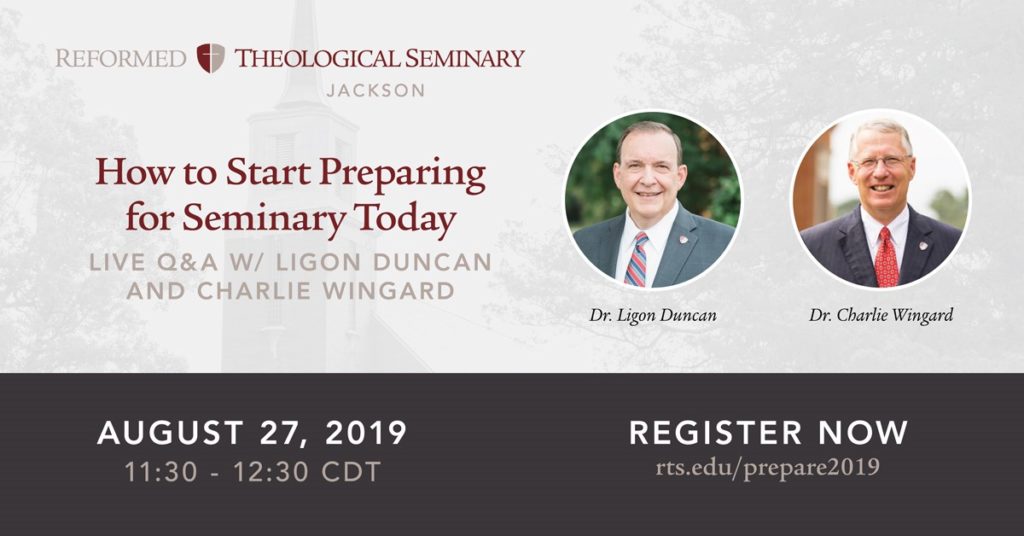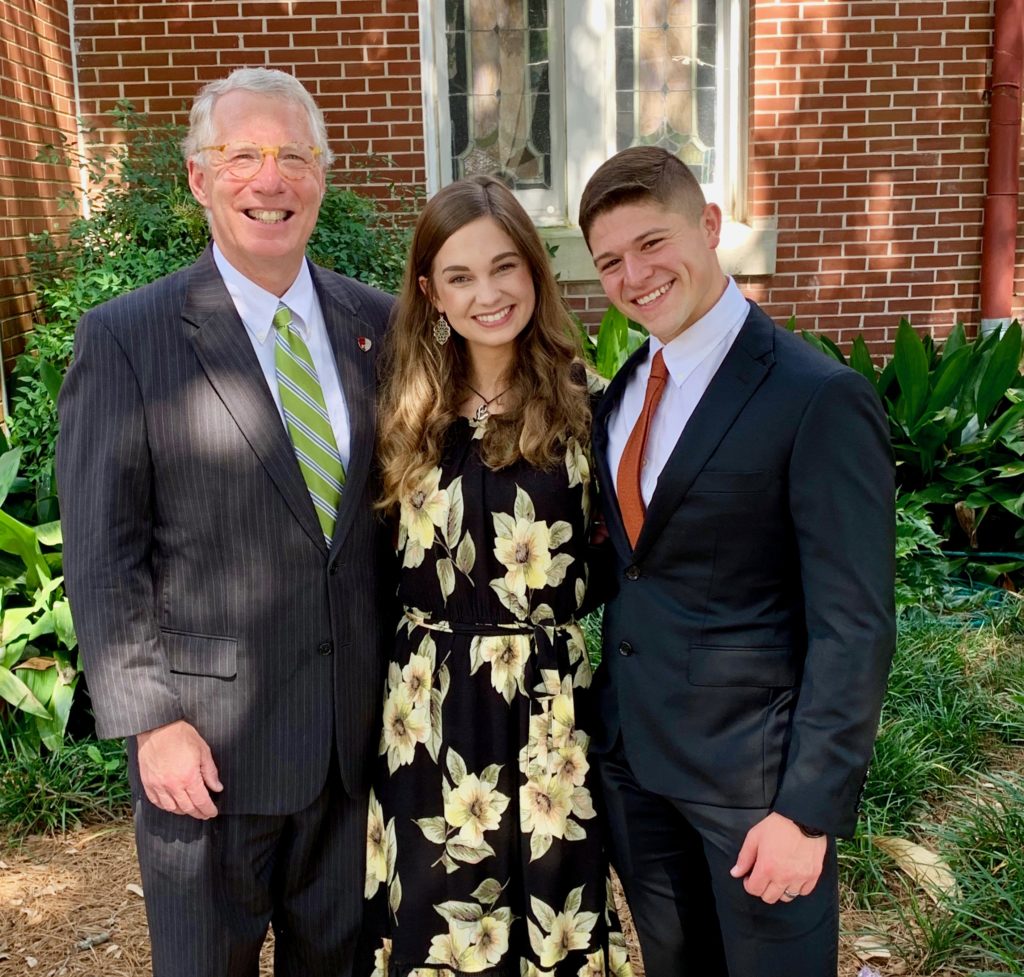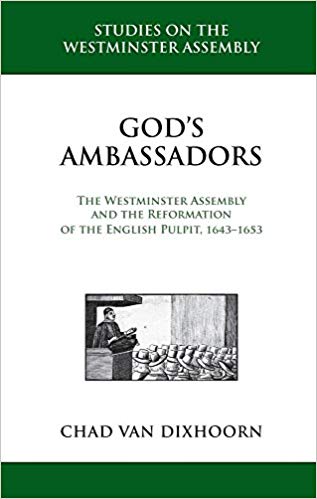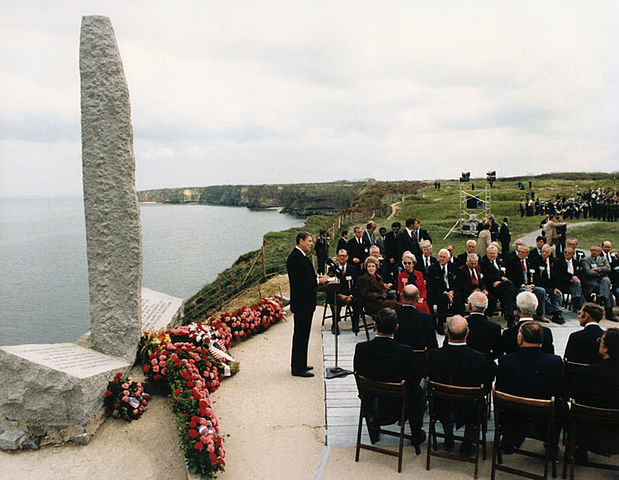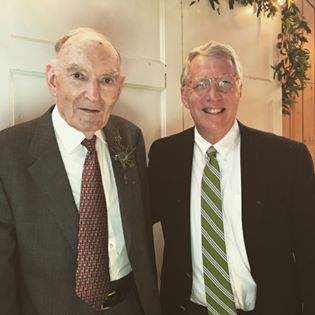My friend Kirsten was making dinner when she heard about a family at church that was suffering from a sudden crisis. She bundled up half of her supper and delivered it to that family – who were blessed and thankful to have it. The next day, she received a call from a woman who worked with the food ministry committee – not to thank her, but to reprimand her for not going through the proper channels and contacting them first. Now I’m all for order and having systems in place. It’s essential when you’re trying to serve so many people, and you don’t want anyone to get lost in the shuffle. But we cross a line when that system…
Read MoreI require my RTS Jackson students to memorize large amounts of scripture. My hope is that they will make scripture memorization a lifelong discipline. In preaching, teaching, counseling, and leading congregational prayer, pastors must have the ability to recall scripture. A few months ago, my friends Jonah and C.L. recommended the Verses app. I have used it for two months and found it a valuable help. For example, my Personal Sanctification class is memorizing Romans 6:1-14. In the Verses app, users will find memory games to assist them. Tracking progress on Verses is easy. Verses can be downloaded from the App Store. I highly recommend this app.
Read MoreBiographer and journalist Robert A. Caro shares glimpses of his life and writing subjects in Working: Researching, Interviewing, Writing. Since the 1960s, his professional career has been devoted to biographies of two twentieth century giants: New York City infrastructure planner Robert Moses (though never elected to public office, he became one of the most powerful men in his state for forty years), and Lyndon Baines Johnson, who as president, reshaped American society. Johnson’s accomplishments were breathtaking. Working with Congress, he secured the 1964 Civil Rights Act, the 1965 Voting Rights Act, the 1965 Immigration Act, Medicaid, Medicare, Head Start, education bills, and War on Poverty legislation. He dramatically increased the scope of the conflict in Vietnam. Four of the projected…
Read MoreIf you’re considering seminary in the next 12-24 months, register for this live webinar, sponsored by Reformed Theological Seminary, Jackson.
Read MoreIn 2014, God sent me to Reformed Theological Seminary Jackson to serve as professor of pastoral theology and dean of students. I love my school; here are nine reasons why: 1. I Love the Students at RTS Jackson. I am the campus’s professor of preaching. Last semester that meant listening to nearly 100 sermons. Some think I’ve been sentenced to hard labor. What could be more tedious than the sermons of novice preachers? Thankfully, I have good news. The sermons I hear are faithful to the scriptures and edify my soul. Student sermons have become a cherished part of my devotional life. I merely assist students in cultivating the gifts God has given them. My denominational home is the…
Read MoreGod’s Ambassadors: The Westminster Assembly and the Reformation of the English Pulpit, 1643–1653, by Chad Van Dixhoorn. Grand Rapids: Reformation Heritage, 2017, xxi + 215 pages, $40.00. The mere convening of the Westminster Assembly in 1643 is a wonder. Since the days of Edward VI, reform efforts in the church of England had stalled or been reversed under his Protestant successors, Elizabeth, James, and Charles I. The eruption of the English Civil War, with its political and military tumult, made the convening even more unlikely. But convene it did, and over the next decade, the fruits of its labors were prodigious. General histories and expositions of the assembly’s Confession of Faith and Catechisms are many. What distinguishes God’s Ambassadors: The Westminster…
Read MoreSummer orientation at Reformed Theological Seminary Jackson is this Friday, June 14. To our new Master of Divinity and Master of Arts in Counseling students, welcome to our campus! I serve as RTS Jackson’s Dean of Students. You should know that any time my door is open you are welcome to come in and talk. My office is located on the second floor of the Dean Center. If it is an emergency, I can be reached on my cell at any time. My number is posted at the foot of the stairs to my office and in the student handbook. New and returning students are invited to dinner at Patterson’s Porch on Friday June 14 at 6 p.m. My wife,…
Read MoreToday is the 75th anniversary of D-Day, the commencement of the Allied invasion of continental Europe. Within a year, Hitler was dead and the Nazi reign of terror over. President Ronald Reagan’s 1984 speech at Normandy marked the 40th anniversary of the invasion. Reagan used the opportunity not only to honor the allied soldiers who fought their way ashore, but also to strengthen NATO’s resolve in the face of threatened Soviet nuclear missile deployments to Eastern Europe. I introduced my high school rhetoric and debate students to this speech as one of the great presidential addresses of the 20th century. I recommend listening to the entire 13-minute speech. My father, George Thomas Wingard, Jr., fought in Europe later in…
Read MoreRetirement was not in the vocabulary of my uncle, John Calvin Wingard. Since ‘retiring’ from a lifetime of ministry at age 70, he pastored two churches, one for nineteen years and a second for the remaining three years of his life. Two weeks ago he was out making pastoral visits to his small flock at First Presbyterian Church in Ripley, Tennessee. On Mother’s Day, he drove fifteen miles to do what he did most Sundays for the past 68 years, proclaim God’s word. The next day, one of his sons drove him to Tupelo, Mississippi to visit his oncologist. He was informed that treatments would yield no further benefits. He walked into a hospital without assistance. By the end…
Read MoreOne of my goals at RTS Jackson is to introduce students to the “neglected voices” of the evangelical church. I am not the best qualified to remedy this neglect, but have made it my habit to assign readings that will help. One such book is Thabiti Anyabwile’s The Faithful Preacher: Recapturing the Vision of Three Pioneering African-American Pastors. The book presents biographical sketches of Lemuel Haynes, Daniel Payne, and Francis Grimké, along with selected writings. First, Lemuel Haynes. Born in 1753, he was abandoned by his parents when only a few months old. He became an indentured servant to a Connecticut family who treated him as their own child, and where he was to receive the blessings of family…
Read More

